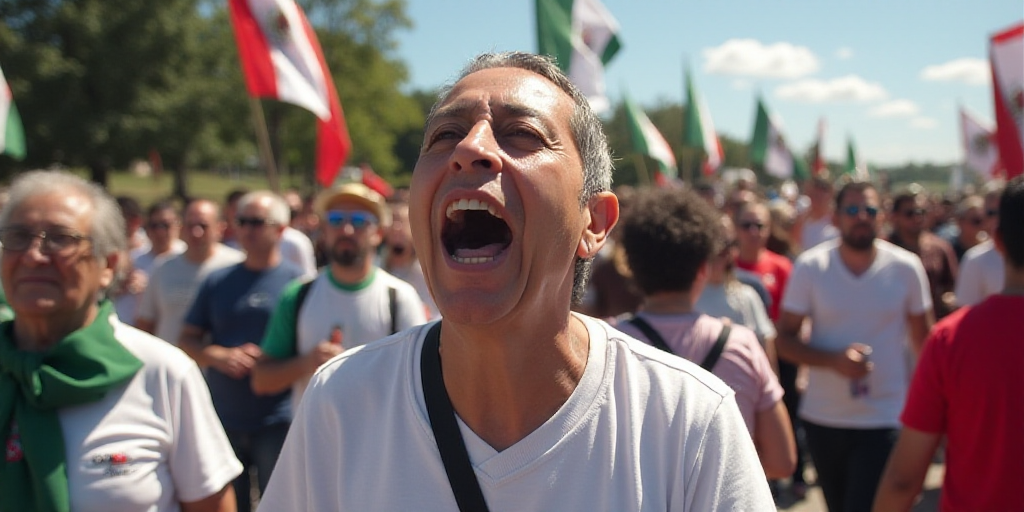Introduction
In times of democratic disillusionment, mistrust looms large. The ruling party assumes that social policies—economic transfers to vulnerable groups—grant it absolute immunity, but errs due to the inertial nature of the party system, particularly from the opposition.
The Rise of Morena and Party Crisis
Morena’s growth can be attributed to the implosion of traditional formations. The PRD’s case is a separate story, marked by a schism among leaders sheltered by cardist ideology, ultimately benefiting AMLO and the social left aiming for his consolidation with radical leadership.
Traditional parties face a crisis due to their failed leadership development system and issues of authority, representation, and institutional mediation. This has led to the emergence of new citizenships detached from organizations disguised as altruism or social management, primarily benefiting their leaders and personal agendas.
Participation modes have drastically changed with digitalization. The shift from ideologically charged party democracies to opinion-based democracies, dominated by psychopolitics, is underway and will create new scenarios, especially in the emerging media ecosystem driven by social networks where public and personal interest news coexist with hate speech, false news, and harassment practices.
Free Speech and Censorship Concerns
The political class dislikes criticism from professional journalists or digital citizens. Is this censorship disguised as reputational protection? When politicians file complaints about being wronged, authorities have instructed the accused to reveal if they posted messages voluntarily or under sponsorship and, if the latter, disclose the sponsors’ identities.
Karla María Estrella Murrieta, a resident of Hermosillo, Sonora, supports the Sociedad Civil MX movement, one of the groups backing the formation of a partisan front in the 2024 election process. Her comment on social media X led to a gender-based political violence complaint sanctioned by the specialized TEPJF chamber.
Dissatisfied with the ruling, Estrella appealed to the superior chamber where magistrate Reyes Rodríguez Mondragón proposed to the Plenum reversing the decision. He described it as “severe criticism… not based on gender elements.” The vote was tied, and ultimately, presiding magistrate Mónica Aralí Soto imposed a fine and a series of sanctions, including public apologies for 30 days, attending a gender course, publishing the ruling on her social media, and registering in the INE’s Register of Sanctioned Persons.
“Freedom of expression cannot be subject to the interpretation of a privileged few,” opined lawyer César Gutiérrez Priego regarding the dispute involving another Morena legislator, María Teresa Ealy, and YouTuber Manuel Pedrero.
This example illustrates that professional journalism has consequences, while its absence has even greater repercussions. The boundaries of free speech are being redefined, and they don’t seem to be expanding.
Key Questions and Answers
- What is the main issue discussed in this article? The article addresses political tensions, mistrust, and the boundaries of free speech in Mexico, focusing on a case involving Karla María Estrella Murrieta and her criticism of a political figure.
- Who is Morena, and why is its growth significant? Morena is a left-wing political party in Mexico. Its growth can be attributed to the collapse of traditional parties, with its rise marked by the schism within the PRD and support from radical leadership.
- What challenges do traditional parties face? Traditional parties grapple with a failed leadership development system, issues of authority, representation, and institutional mediation. These challenges have led to the emergence of new citizenships detached from organizations that primarily benefited their leaders and personal agendas.
- How has digitalization impacted political participation? Digitalization has drastically altered participation modes, shifting from ideologically charged party democracies to opinion-based democracies dominated by psychopolitics. This change will create new scenarios, particularly in the emerging media ecosystem driven by social networks.
- What are the concerns regarding free speech in this context? Concerns revolve around censorship disguised as reputational protection and the redefinition of free speech boundaries. The case of Karla María Estrella Murrieta highlights these issues, as her criticism led to severe sanctions.
Additional Context
Program Launch:
In three days, during the Cumbre por la Restauración de los Ecosistemas de México, Environmental Secretary Alicia Bárcena will publicly present the National Environmental Restoration Program 2025-2030. This federal strategy aims to restore soils, basins, forests, and wetlands in the country.
Supplementation:
Three years after Notimex’s extinction due to strike and “the information vacuum left by the closure of the historic government agency,” a group of journalists has joined forces to create a new information platform: the Mexican News Agency (AMN). This free monitoring, alert, and content distribution service targets media, communicators, and journalism professionals nationwide. Described as an independent, non-profit initiative, AMN aims to ensure free and timely access to public interest information.






